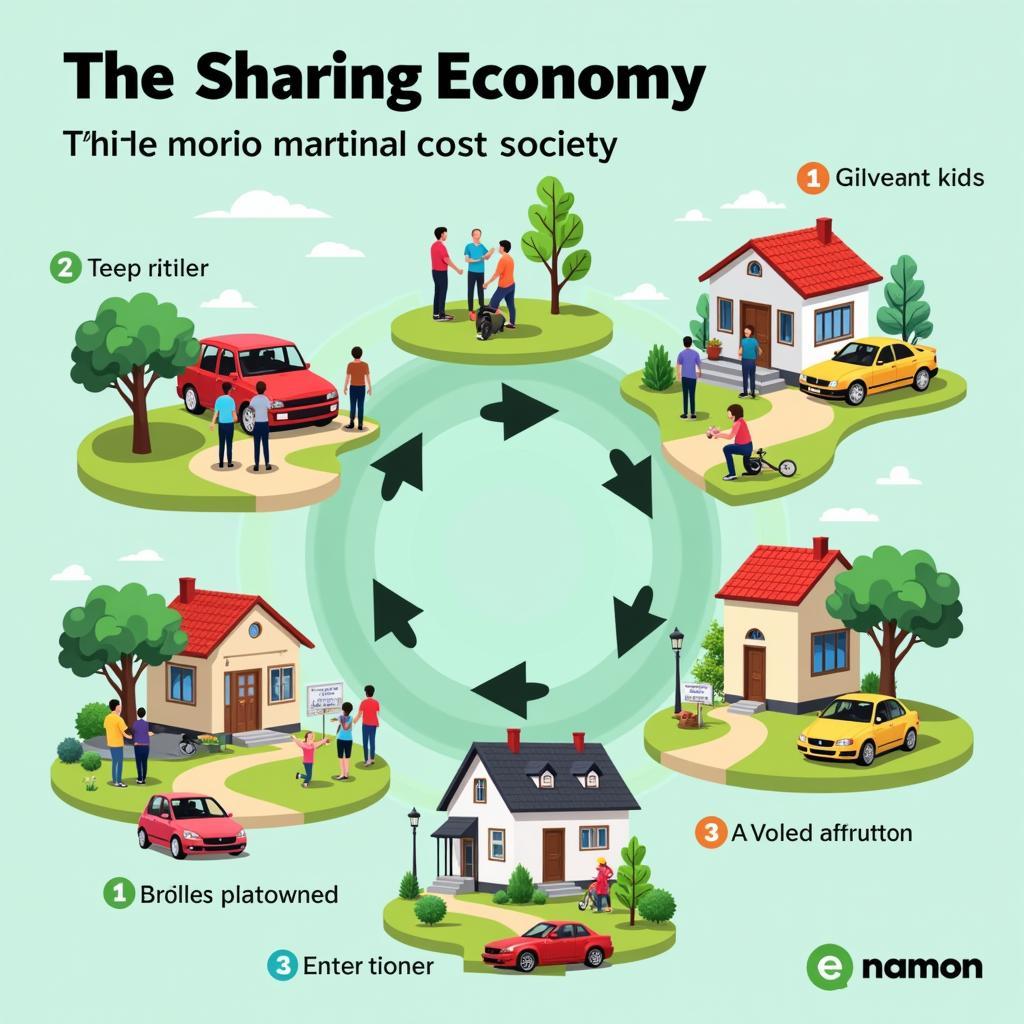The dawn of the 21st century has ushered in an era of unprecedented technological advancement, with profound implications for the global economy and society as a whole. At the heart of this transformation lies the concept of the “Rifkin Zero Marginal Cost Society,” a term coined by social theorist Jeremy Rifkin, describing a future where the cost of producing an additional unit of many goods and services plummets to near zero.
This paradigm shift is primarily driven by the convergence of several key technological forces: the Internet of Things (IoT), renewable energy, 3D printing, and collaborative commons. The IoT enables seamless communication and data exchange between devices, while renewable energy sources like solar and wind power offer virtually limitless and increasingly inexpensive energy. 3D printing revolutionizes manufacturing by allowing for decentralized and on-demand production, and collaborative commons foster the sharing of knowledge, resources, and innovations on an unprecedented scale.
The Implications of Near-Zero Production Costs
The implications of a zero marginal cost society are far-reaching and multifaceted, impacting everything from traditional business models to the very fabric of our social structures.
Economic Disruption and Opportunity
One of the most immediate impacts of this trend is the disruption of traditional industries and business models. As the cost of production decreases, so too do profit margins, forcing businesses to adapt or become obsolete. This creates both challenges and opportunities, as new business models emerge that leverage the abundance and accessibility of resources in this new economic landscape.
 The Rise of the Sharing Economy
The Rise of the Sharing Economy
For example, the sharing economy, where individuals can rent or share assets like cars, homes, and tools, is a prime example of a business model flourishing in a zero marginal cost society. Similarly, subscription-based services and platform-based businesses that connect producers and consumers directly are also well-positioned to thrive in this environment.
The Transformation of Labor and Skills
The nature of work is also undergoing a profound transformation in the face of increasing automation and the rise of artificial intelligence. As machines become increasingly sophisticated, they are capable of performing tasks that were once the exclusive domain of human workers, leading to concerns about job displacement.
However, this shift also presents an opportunity to redefine the role of human labor in the economy. As routine tasks become automated, the demand for skills related to creativity, critical thinking, problem-solving, and emotional intelligence will increase. This underscores the importance of investing in education and training programs that equip individuals with the skills they need to thrive in this evolving job market.
Building a More Equitable and Sustainable Future
While the technological advancements driving the zero marginal cost society hold immense promise, it’s crucial to address the potential societal impacts and ensure that these advancements benefit all members of society.
Addressing Inequality and Promoting Access
One of the most pressing concerns is the potential for increased economic inequality. As traditional jobs are displaced and the gap between the wealthy and the poor widens, it’s essential to explore new social safety nets and economic models that ensure everyone has access to basic needs and opportunities. This could involve exploring concepts like a universal basic income, guaranteed access to education and healthcare, and other measures designed to create a more equitable society.
Fostering Sustainability and Environmental Stewardship
Another crucial aspect of navigating the zero marginal cost society is ensuring its sustainability. While the rise of renewable energy and the potential for reduced consumption through sharing economies are positive developments, it’s vital to address the environmental impact of technological production and disposal. This requires a shift towards a circular economy that prioritizes resource efficiency, waste reduction, and the development of sustainable production and consumption patterns.
Embracing Collaboration and Collective Action
Navigating the complexities of the Rifkin zero marginal cost society demands a collaborative and forward-thinking approach. Governments, businesses, and individuals all have a role to play in shaping a future where technological advancements contribute to a more equitable, sustainable, and peaceful world.
By embracing dialogue, fostering empathy, and working together, we can harness the transformative power of technology to create a future where everyone has the opportunity to thrive.
FAQs about the Zero Marginal Cost Society
1. Will a zero marginal cost society lead to mass unemployment?
While some job displacement is inevitable, the zero marginal cost society also creates new opportunities. The key is to adapt and develop skills relevant to the changing job market.
2. How will a zero marginal cost society impact the environment?
The impact on the environment depends on how we manage the transition. Embracing renewable energy and circular economy principles will be crucial for sustainability.
3. What role does government play in a zero marginal cost society?
Governments play a crucial role in ensuring a smooth transition, providing social safety nets, promoting education and retraining, and fostering a sustainable future.
4. How can individuals prepare for a zero marginal cost society?
Individuals can prepare by embracing lifelong learning, developing adaptable skills, and staying informed about technological advancements.
5. What are the potential pitfalls of a zero marginal cost society?
Potential pitfalls include increased inequality, environmental degradation, and the erosion of privacy if not managed effectively.
Need Help Navigating a Changing World?
For support in understanding and adapting to the challenges and opportunities of a rapidly evolving world, contact us:
Phone: 02043854663
Email: [email protected]
Address: Khu 34, Bắc Giang, 260000, Việt Nam
We offer 24/7 support and a wealth of resources to help individuals and communities thrive in a changing world.